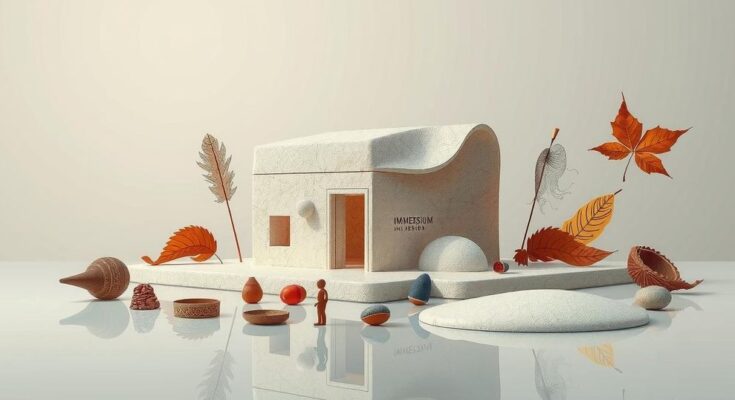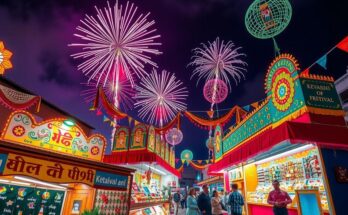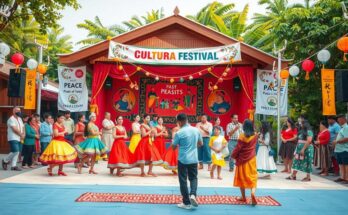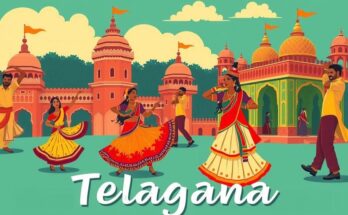Olugbile Holloway, the Director-General of the National Commission for Museums and Monuments (NCMM), advocates for a transformative approach to museums, emphasizing the importance of Indigenous narratives and cultural immersion. During an ARISE NEWS interview, he stressed that museums should reflect local contexts and offer narratives in Indigenous languages, expressing that English often fails to capture the richness of certain artifacts. He argues that incorporating local languages enhances cultural connections.
Holloway reflected on the historical scars left by the 1897 Benin punitive expedition, acknowledging its lasting emotional impact on the Benin people and all Nigerians. He stated, “The collective trauma of what happened in 1897 hasn’t really gone away… people go to museums and they ask themselves how come these pieces are in foreign museums.” Holloway emphasizes that the context of colonial looting is vital to understanding these artifacts’ significance in Africa’s cultural narrative.
In discussing the return of the Benin Bronzes, Holloway detailed the NCMM’s efforts in their repatriation and management, confirming a collaborative approach with the Oba of Benin. A new historic facility in Benin, set to open in Q1 of this year, will temporarily house the bronzes, with plans for their distribution across various museums in Nigeria. He asserted that the NCMM is also expanding facilities in Lagos and prioritizing a new museum in Abuja to celebrate Nigeria’s heritage.
Addressing the notion that looted artifacts are better preserved in Western institutions, Holloway called for a shift in perspective regarding African heritage. He argued against the mindset that devalues local artifacts, asserting, “The concept that anything foreign is better than anything Nigerian… is the root cause of why a lot of our heritage isn’t appreciated.” Holloway believes Nigerian cultural ownership is essential for fostering local appreciation and engagement with their history.
Beyond the Benin Bronzes, Holloway envisions broader goals for the NCMM, including leveraging technology to combat artifact trafficking. He emphasized the importance of truth and reconciliation in discussions about slavery and colonialism, stating, “Returning objects is not about the objects in themselves; it’s about what the objects symbolize.” He believes reclaiming cultural heritage is vital for reshaping Africa’s identity, paving the path for global respect.
Ultimately, Holloway’s vision calls for a reimagined museum experience that highlights local languages, histories, and cultural narratives, emphasizing that understanding one’s identity is key to gaining respect on a global stage.
Olugbile Holloway, head of the NCMM, urges a redefinition of museums to include Indigenous narratives and immerse visitors in local culture. He stresses the importance of local languages in understanding artifacts, particularly those tied to traumatic historical events like the Benin punitive expedition. Holloway also outlines efforts to return the Benin Bronzes and promote Nigerian heritage through expanded museum facilities, emphasizing the need for a shift in perception and ownership of cultural artifacts.
Holloway’s vision for Nigerian museums advocates for a cultural renaissance by reimagining how artifacts are presented and understood. His emphasis on local languages and communal narratives aims to heal historical wounds and reclaim cultural pride. By addressing these issues, he believes Nigeria can foster a profound understanding of its identity, leading to greater respect both nationally and internationally.
The discussion centers around the role of museums in reflecting local histories and cultures, particularly in Nigeria where colonial legacies have resulted in the loss of cultural artifacts. The conversation led by Olugbile Holloway underlines the necessity for museums to be more inclusive and to embrace Indigenous languages, ultimately advocating for a space that honors Nigeria’s rich heritage while addressing the historical injustices faced by cultures like the Benin Kingdom.
Original Source: www.arise.tv



